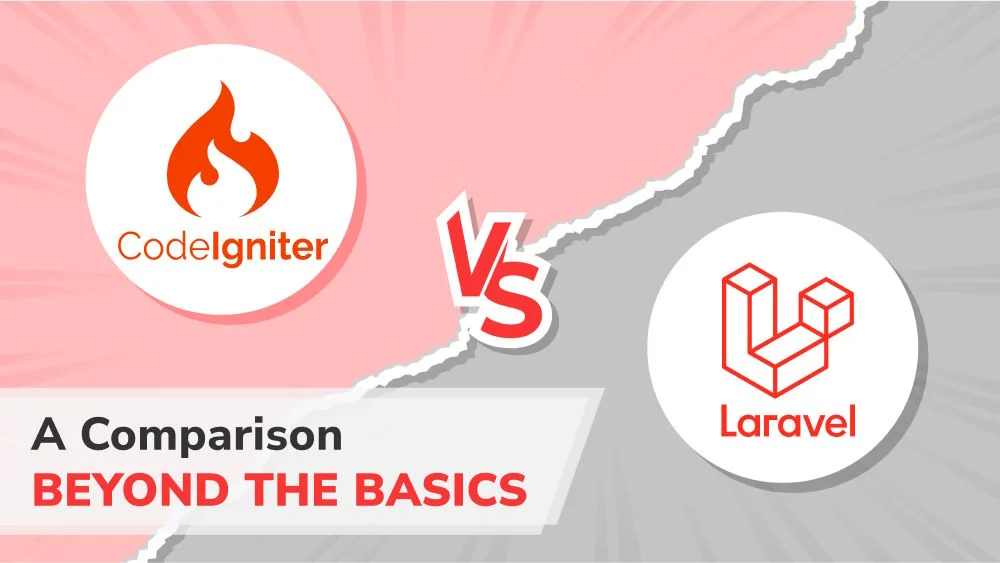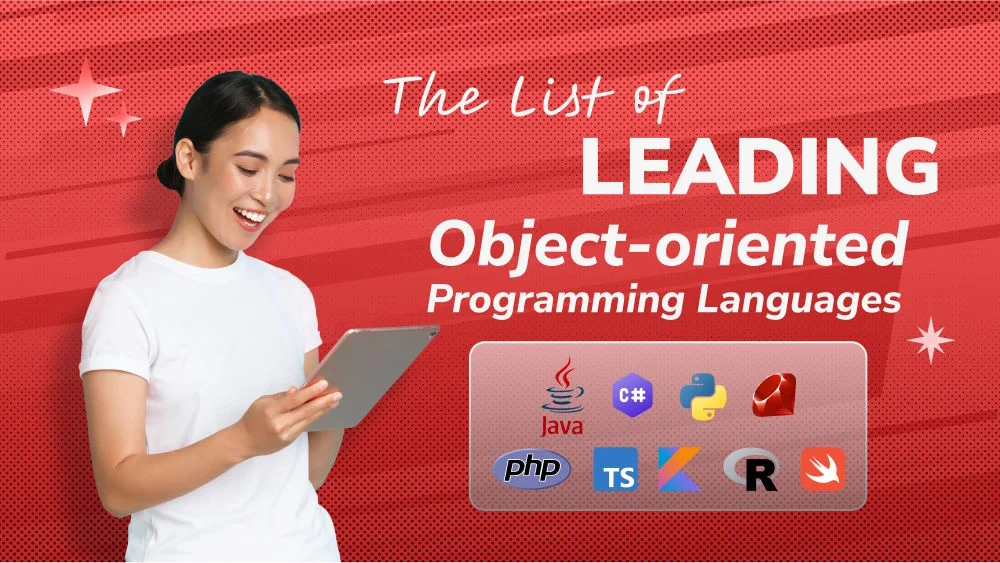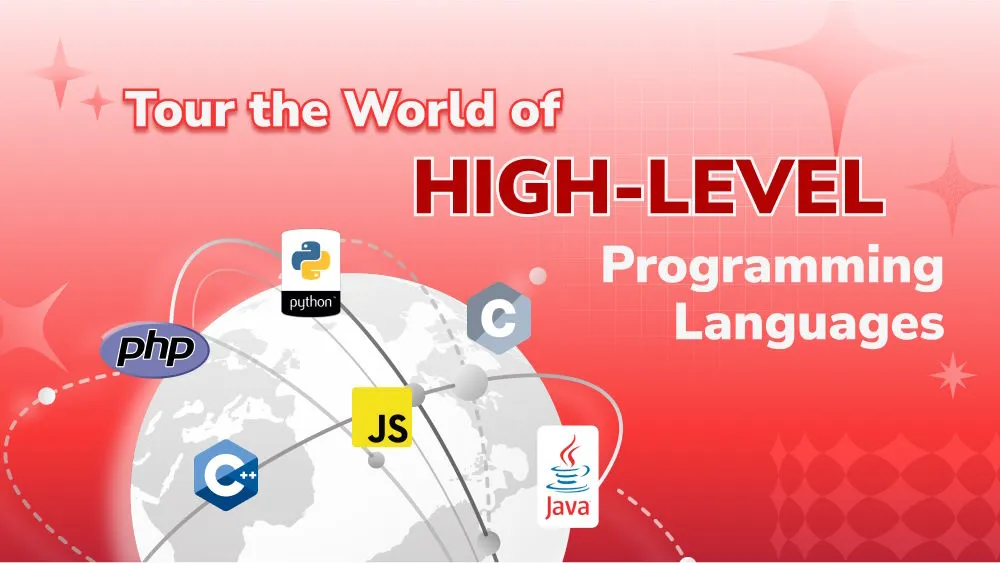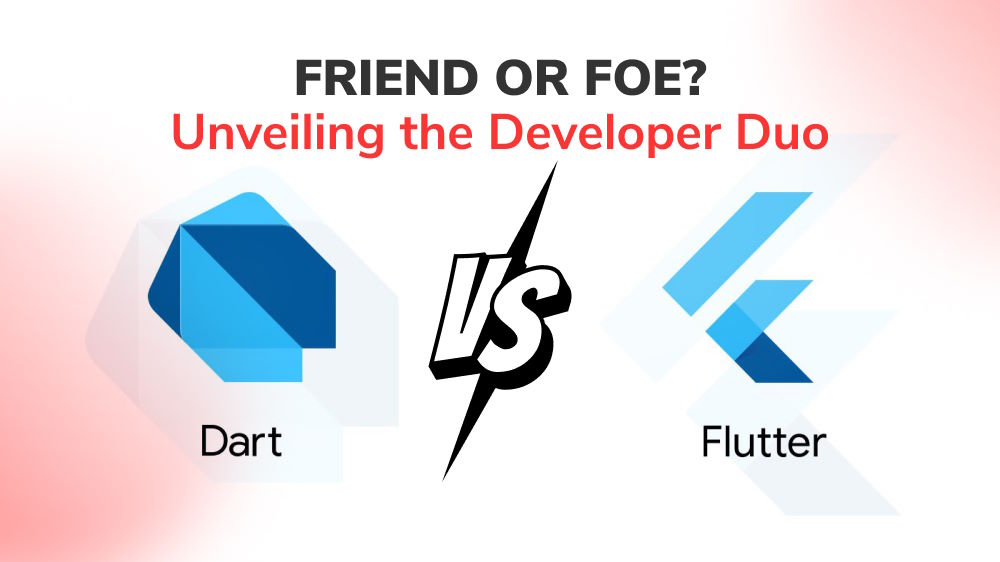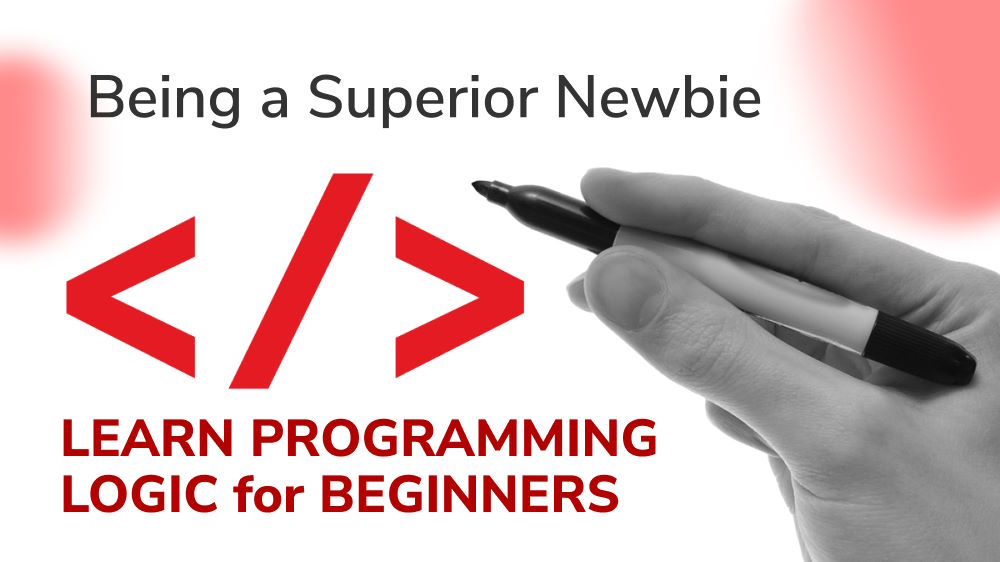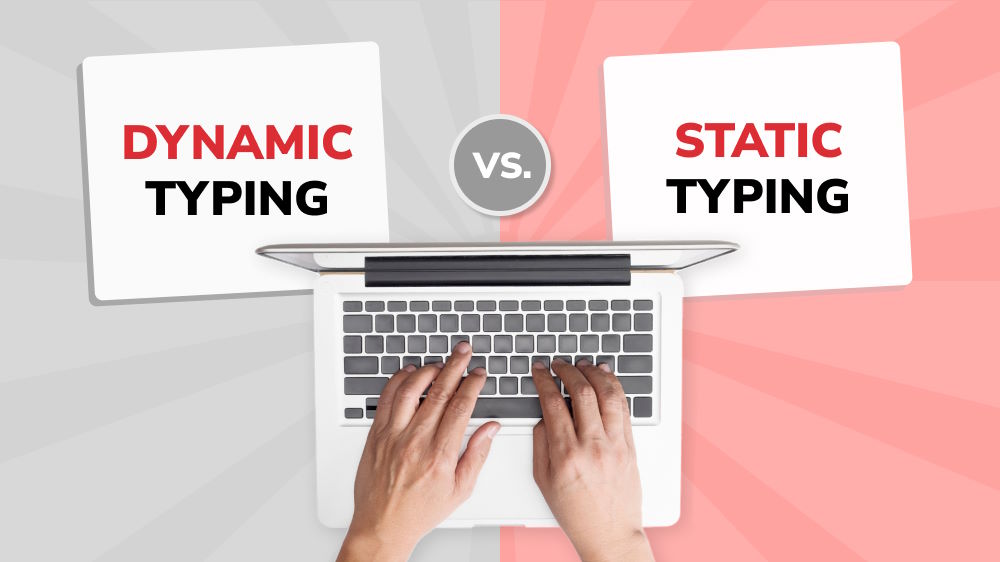Java Vs. C++: Which Object-oriented Programming Language Is Best for Your Project?
Java and C++ share some aspects in common; however, they are two different programming languages that shine their own lights in different cases. It can be a dilemma to choose one over another. Don't worry; this comparison lays down the key differences for your consideration.
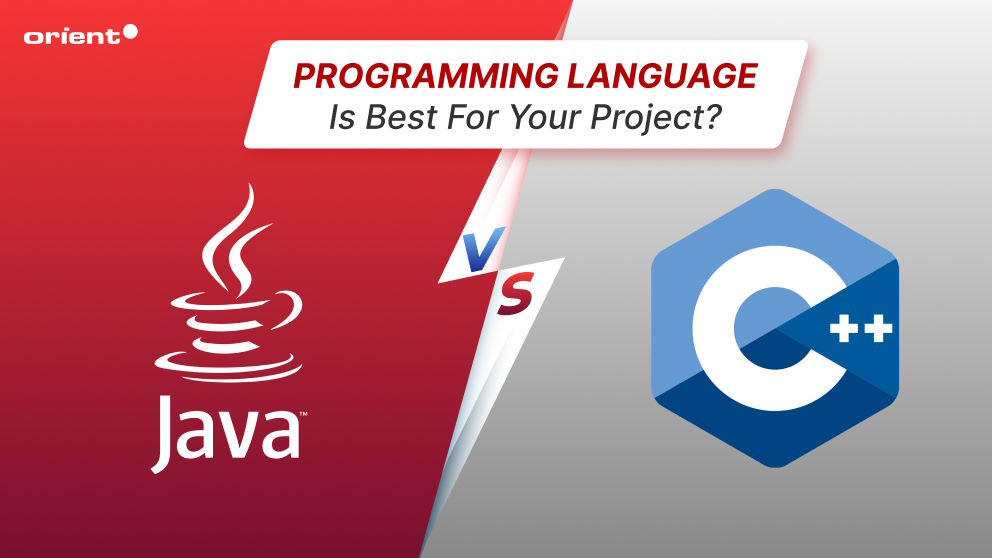
Content Map
More chaptersDevelopers have a handful of programming languages, from the most popular ones like Python or Java to the more complex ones like C++ or Go. Of the object-oriented languages, Java and C++ have always been standing out compared to other programming languages. Both of them share some aspects in common, like similar syntax and data types. And both Java and C++ are well-known and trusted for different types of software development, game development, mobile application development, system programming, web development, etc., to name a few.
Nevertheless, the likeness does not mean these two programming languages are any less different or can be used interchangeably. They are suitable for different projects and have their own strengths and weaknesses. Neither language is worse or better than another, so it may be a dilemma to decide between them. Then comes a tug of war. But don’t be despondent yet because Orient Software is here to help. Don’t worry because we have you covered. In this side-by-side comparison, the differences between C++ and Java will be laid down for your interpretation.
What Do You Know About These Two Object-Oriented Programming Languages?
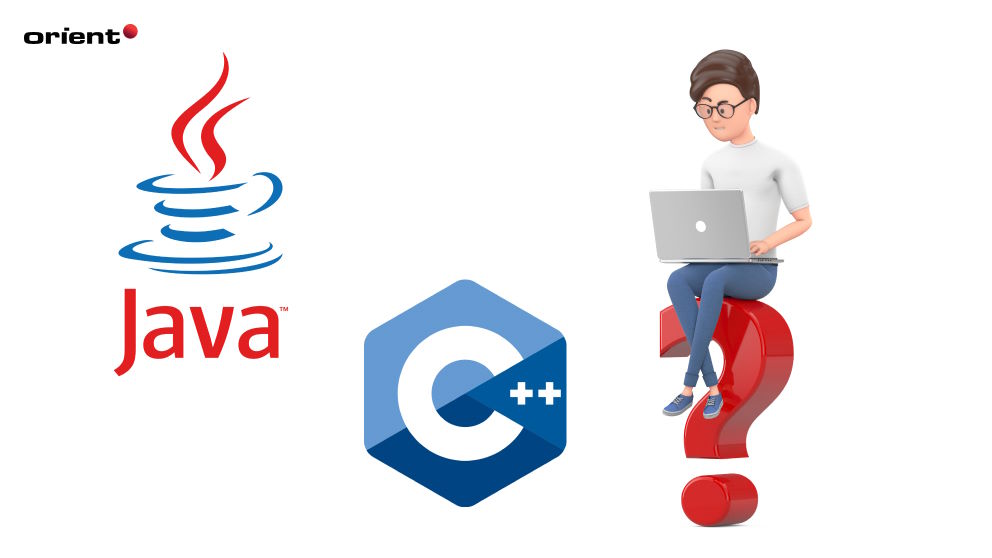
In the very first look, C++ and Java are OOP languages. What is OOP? In brief, it accounts for object-oriented programming. It is based on the concept in which objects and their interactions in the program are treated as real-world objects in terms of properties and methods. An object-oriented language offers the advantage of data abstraction that helps to break down complex problems into simpler ones. And the most remarkable feature of OOP is the reusability of code. As always, it is better to know the ins and outs of each before you can put them for comparison. Let’s dive into some details.
Introduction to Java Language
Usually considered the starting point of every coder, Java always has its face in the list of the most popular coding languages. Originally invented by James Gosling at Sun Microsystems and officially released in 1995, Java is a high-level, class-based, and as aforementioned, it is an object-oriented programming language designed to be portable, secure, and easy to use. Python is also listed as one of the best languages for DevOps.
Its syntax, which is derived from C and C++ with simpler object models and fewer low-level facilities, is clean, easy to understand, and essentially eliminates the possibility of programming errors like memory leaks. JNI or Java Native Interface is one unique feature of the Java language. Through it, developers can access native libraries written in other languages like C/C++ from Java code.
Java is known for Write Once Run Anywhere (WORA), which allows you to write and run compiled Java code on any operating system or platform powered by the Java Virtual Machine (JVM). In other words, Java is platform-independent, making it an ideal language for cross-platform development and various product goals. Software engineers have a lot to do with Java programming language, ranging from mobile apps (especially Android ones), desktop applications, games, web app servers, and heaps more.
Java programming language supports documentation comments – known as Javadoc comments which enable developers to generate API documentation in HTML format directly from the source code. Thanks to this feature, developers can access and read the Java source code, easing how they understand the functionality of methods, classes, and packages in Java programs.
Introduction to C++
For your information, C/C++ is ranked in the world’s most popular coding languages (according to PYPL) too.
C++ is a general-purpose OOP language – one of the chosen ones for building websites, mobile apps, and more. It was defined by Bjarne Stroustrup in 1983 as an extension of the C language. Therefore, it inherited all the features from C, but unlike its predecessor, C++ is much faster and highly efficient.
In terms of syntax, C++ borrows from both C as well as Java. It is a compiled language that supports procedural programming and the OOP approach. Its syntax is often perceived as intricate, but it offers a low-level programming capability – enables a high level of control over resources and memory – which is why C++ is preferred as a good choice for high-performing applications.
C++ is a compiled language which means that instructions written in the language are translated into machine code, then executed. Thanks to this feature, C++ programs are faster than ones written in interpreted languages like Java or Python. In fact, the C++ language itself is platform-independent, but the compiled C++ code is binary, making it platform-dependent. In addition, C++ does support multiple inheritance and comes with a range of built-in support features for data abstraction, polymorphism, and inheritance, and makes programming easier and more efficient.
Java vs. C++: Which Programming Language Is Better?
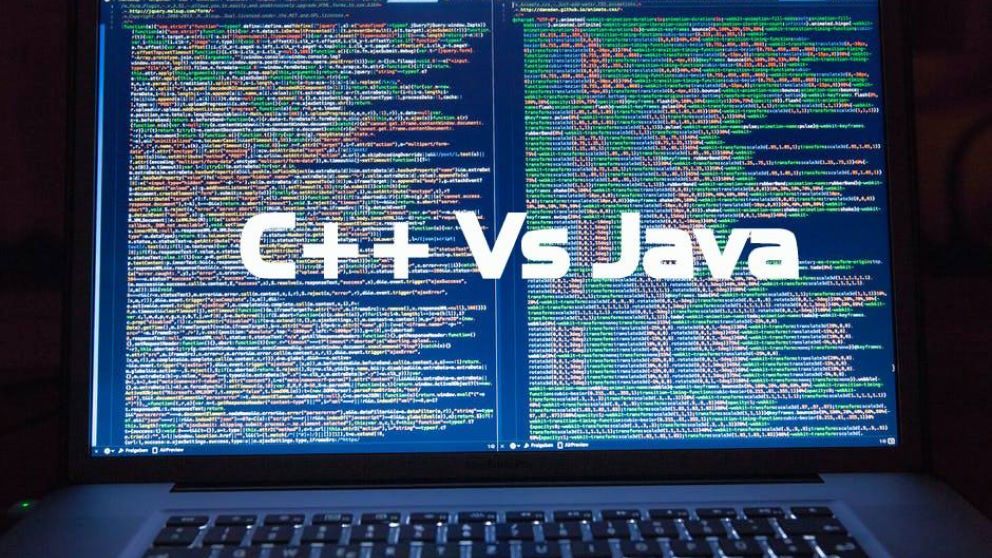
It is quite subjective to jump right into a conclusion; instead, let’s compare the differences between Java and C++ side by side. From then, you can figure out the answer.
Similarities
These two languages are a renowned pair of object-oriented programming languages, so they inevitably have something in common. Note that, despite their similarities, they cannot be used interchangeably.
Object-Oriented Programming
By nature, Java supports object-oriented programming – a paradigm that uses objects and classes to model the problem and create a virtual world - and so does C++. Both programming languages follow the same OOP principles, such as encapsulation, inheritance, abstraction, and polymorphism.
Syntax
Next, the syntax of Java and C++ are similar as well. Why is that? It is due to the fact that C++ was created as a version of the C language, and Java was essentially derived from C++. As a result, many of the commands written in Java and those in C++ look alike.
Data Type
Another commonality between Java and C++ is that both of them feature primitive data types. Java and C++ are strongly typed languages with a set of data types. In Java, the supported data type includes eight primitive data types - boolean, byte, char, double, float, int, long and short; whereas C++ supports nine primitive types -char and void being two extra apart from Java.
Distinctions
Some may find the C vs. Java and C++ vs. Java comparisons nearly equivalent, but look closer at the following aspects; you can see some kind of clear distinction:
Features
Despite their shared features, Java and C++ possess distinctive ones. While Java does not support multiple inheritances directly, it can be achieved through interfaces. Moreover, Java supports multithreading, which enables concurrent execution of two or more parts of a program to maximize utilization of the CPU.
On the other hand, C++ is both a procedural and OOP language; thus, it offers more flexibility than Java. C++ supports multiple inheritances, and it is a fully featured language with features such as an exploitation of low-level memory management, generic programming support, function overloading, and operator overloading. Moreover, C++ offers two types of compilation systems - traditional and precompiled headers.
Speed & Performance
Generally, C++ outpaces Java in terms of speed. In specific, C++ is a compiled programming language, so its code can run almost immediately on any supported platform. It is the main reason for C++ to be present in the top fastest programming languages. Meanwhile, Java is slower as it uses JVMs for execution, which may cause performance overhead and lackluster speed.
Memory Management
In Java, the process involving the allocation and deallocation of memory to applications is automated thanks to JVM and automatic garbage collection – the feature that automatically clears unused objects from memory. Automatic memory management relieves Java developers from manual work and reduces the chance of memory leaks. This feature makes Java easier to maintain as compared to C++.
C++ does not have such a built-in support feature, which means developers have direct control over the memory management process but have to tackle it manually.
Ease of Use
Java or C++; which one is easier to use? In terms of this, Java stands an advantage over C++. Due to its concise and simple syntax, Java makes a good start for beginners. On the contrary, C++ is a more complex language with a steep learning curve, requiring more attention to detail and patience when coding.
Platform Dependence
Portability is another factor that sets these two languages apart. Java is highly portable, and a Java program (compiled into bytecode) can run on any machine that has a Java Virtual Machine (JVM), irrespective of the underlying computer architecture. The “write once, run anywhere” feature is one of the key selling points of Java.
C++ code is portable to the extent that the libraries used in the code are available on the target platform, and the code doesn’t use any platform-specific features. However, the compiled executables are not portable; they need to be recompiled to the target platform. It is more of a platform-dependent language.
So, Which One Suits You Better?
After a quick tour through how Java and C++ are compared in terms of both commonalities and distinctions, you must have got gaze into each of these two languages. Neither Java nor C++ is definitely better than the other, as it all depends on where you stand and what you expect from a programming language. Therefore, we cannot recommend one over the other for all cases in a steady manner. But we are certain that both languages will prove themselves useful in different projects. And it is up to you to align the options with your requirements and decide your best fit.
Fortunately, if you require an exact answer to the dilemma of choosing between Java and C++, then you have us – Orient Software, an IT partner and counselor that you can totally rely on for technical advice or expert support. Of course, in order to advise you on this, we need to understand your project requirements in detail. So, do not hesitate to contact our team today for further information.

